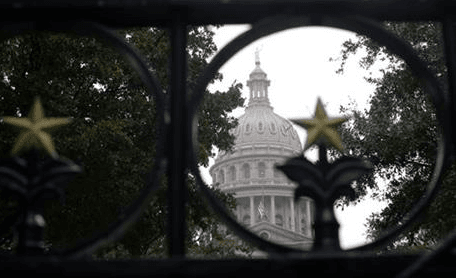AUSTIN, Texas — One of the greatest and most consistent challenges for any elected official is resisting the powerful urge to “do something” with political power. Free markets are self-organizing, decentralized, and seemingly chaotic to the outside observer. These attributes grate against the powerful desire for intervention by both politician and regulator.
As a testament to the Texas governing class and its collective ability to resist the temptation to mess with markets—at least relative to its peers—as a percentage of state income, Texas had the 47th-smallest state and local government burden in America in 2011, according to the Tax Foundation.
On the other hand, private economic activity thrives in Texas. From the onset of the recession in December 2007 to last month, 1.4 million more Texans are working. Minus Texas, the rest of the nation has seen 143,560 more jobs created. 1 of every 12 Americans is a Texan but 9 of every 10 jobs created in the past seven years has been in Texas.
Texas’ success has far more to do with entrepreneurs than with government.
Lawmakers gathering for the upcoming legislative session in Austin will grapple with a host of issues fundamental to Texas’ proven model: heavy on liberty, personal responsibility and free enterprise and light on taxes, regulation, and frivolous lawsuits. Upcoming action in the statehouse will likely include: tax cuts, spending caps, public school reform, Medicaid expansion, and transportation.
There are three big tax matters up for consideration: eliminating or cutting the state’s complex business margin tax; reforming property taxes to make it more difficult to hike them at the local level; and creating a mechanism to return budget surpluses to the taxpayers through a temporary reduction in the sales tax known as the Sales Tax Relief (STaR) Fund.
Texas’ spending cap needs strengthening. Currently, the Lone Star State’s spending cap only covers about 40 percent of state spending and is only limited to a prediction of the growth in personal income over the next two years. Had state spending over the last 10 years been limited to the sum of inflation and population growth, today’s spending would be less by $1,800 for a family of four.
Reforming K-12 public schools to allow for educational freedom would have tremendous long term benefits. Texas has no private school choice program—but there are 39 across the nation. School choice allows parents and students, especially those in failing schools, the opportunity for a better education and a brighter future.
Once again, a coalition of hospitals and some business groups is leading the charge to expand the troubled federal Medicaid program in Texas with some pointing to its expansion in Utah as a model for Texas. But Utah’s Medicaid expansion has seen fresh criticism for not being what was promised: innovative, cost effective, and independent from the federal government. Regardless of what Medicaid expansion is called, it’s still Medicaid. As TPPF’s Center for Health Care Policy Director, John Davidson, recently said, as quoted in the Houston Chronicle, “Rebranding Medicaid expansion as ‘The Texas Solution’ or ‘The Texas Way’ doesn’t actually change the fundamentals. It is Medicaid, and that means it’s an entitlement, and there’s not much you can do about that.”
Lastly, transportation will receive major attention. The voters approved the diversion of about $1.7 billion of Texas’ oil and gas tax revenue away from the Economic Stabilization Fund and towards roads. But this new source of revenue simply replaces much of what used to be generated by transportation bonds; bonds which have run their course and must now be paid back. Some $650 million per year may be applied to transportation by ending the practice of spending State Highway Funds on non-transportation purposes. In addition, procurement efficiency can be improved, stretching construction dollars by up to 30 percent, through lifting the cap of three design-build contracts per year from the Texas Department of Transportation.
A new team in the State Capitol will soon make a host of decisions. Strengthening the Texas model will provide greater opportunities to more Texans; growing government won’t.
The Hon. Chuck DeVore is vice president of policy at the Texas Public Policy Foundation and served in the California legislature from 2004 to 2010. Follow him on Twitter @chuckdevore.

COMMENTS
Please let us know if you're having issues with commenting.